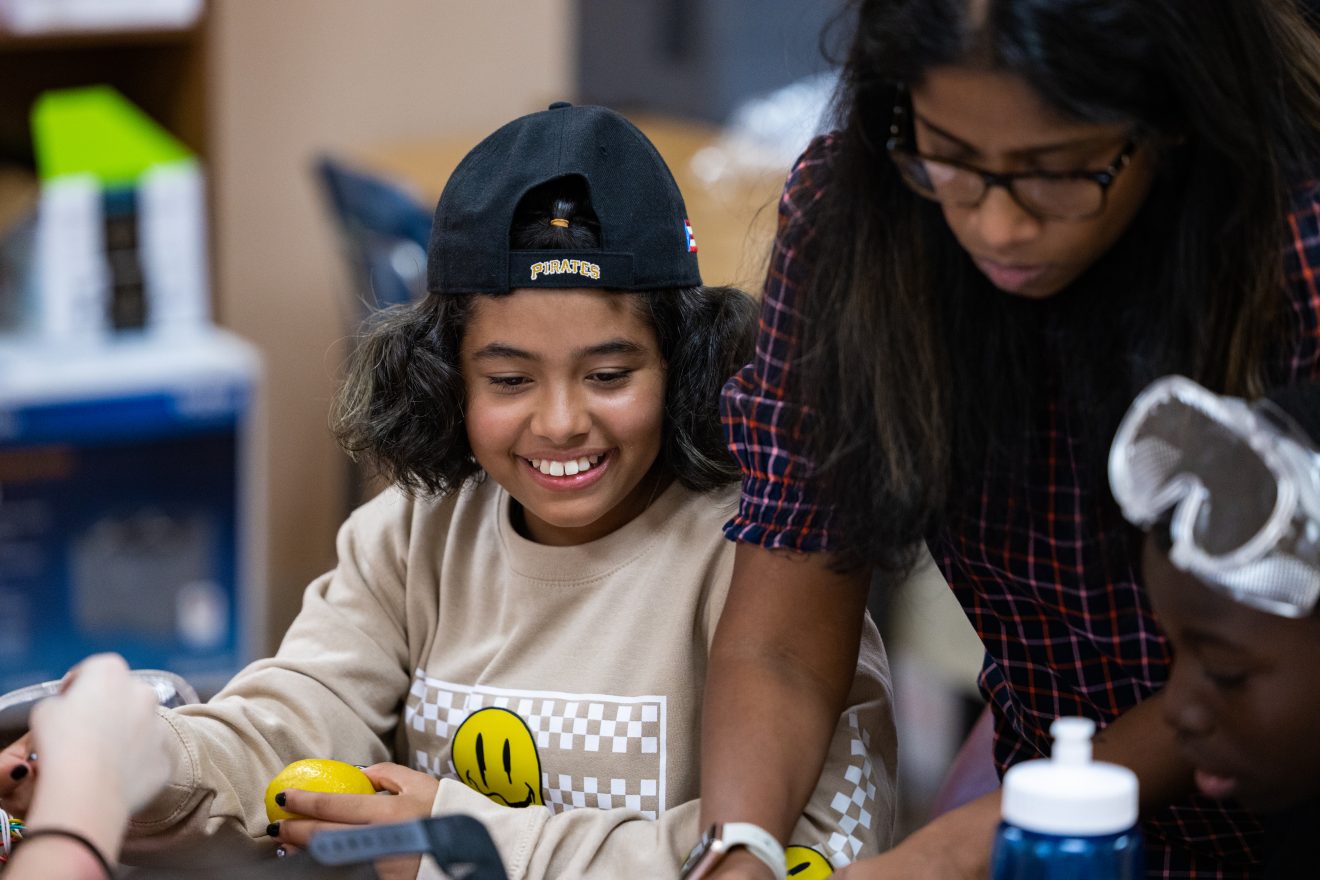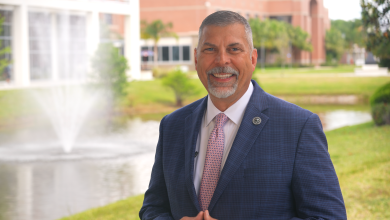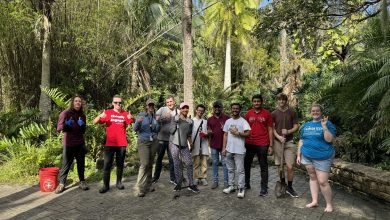Forget Lemonade: Middle School STEM Club Quenches Thirst For Science
On a sunny day in October, cheers can be heard from a classroom at Palm Bay Academy Middle School.
Thirteen students are crowded around tables as part of the school’s STEM Club, lighting up LED lights using batteries. No big deal, right?
Except the batteries they are using are lemons.
“Wow!” one of the students exclaims. “It smells just like a lemon candy.”
The club, which meets once a month, was created through the combined efforts of Florida Tech assistant professor Pavithra Pathirathna and Palm Bay Academy Middle School’s exceptional student education (ESE) teacher Laura Marshall.
Pathirathna says she met Marshall in 2019, when she enrolled her oldest child into kindergarten at Palm Bay Academy, as Marshall was his teacher.
“We never stopped talking,” Pathirathna says. “Based on the interactions I had with her, I had a very positive outlook on the school. My son learned a lot, and I was pretty amazed by the work they were doing, given the limited resources they had.”
The school eventually ran into issues finding a consistent science educator. Marshall, knowing Pathirathna works as a chemistry professor at Florida Tech, reached out to see if she could assist.
“The school itself was so eager to establish this, but they didn’t really have the right resources,” Pathirathna says.
“The kids are from underprivileged families, and they have no idea what this kind of science is. It’s a whole different world.”
Pathirathna applied for and won a National Science Foundation grant to help fund the club as an outreach activity. The grant will also fund a summer camp for a few club members to get hands-on experience in her lab at Florida Tech, where they will learn chemistry from Pathirathna and her graduate students.
“The STEM Club and upcoming summer program are invaluable to our students, who would not have these opportunities to explore the sciences due to their socioeconomic status,” Marshall says. “This opportunity sheds light on STEM for our students and gives them hope and encouragement for their future occupations.”
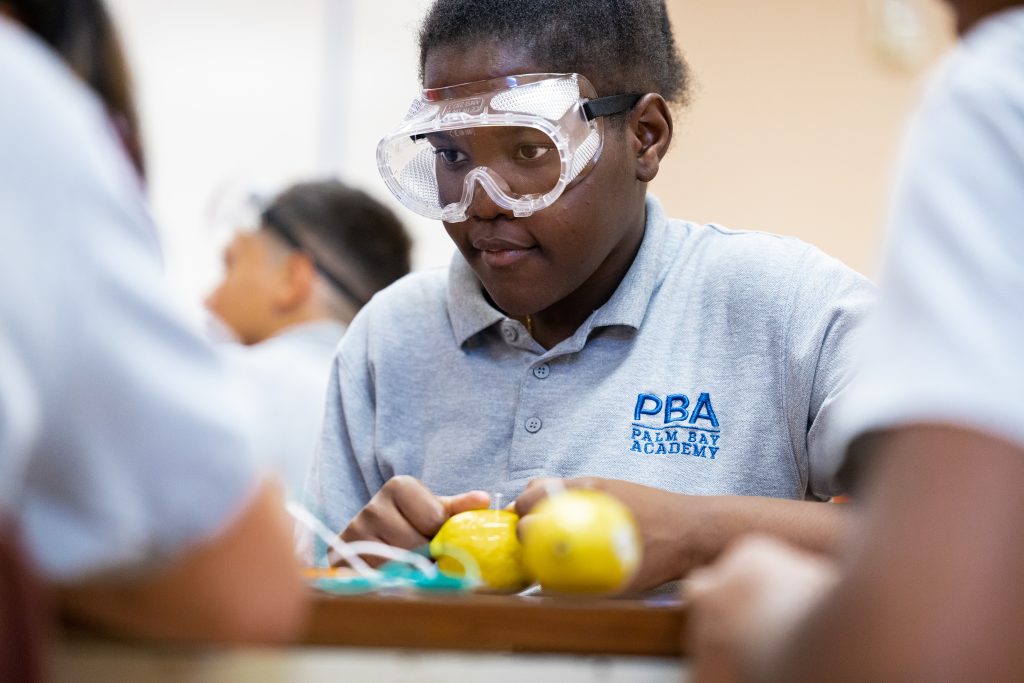
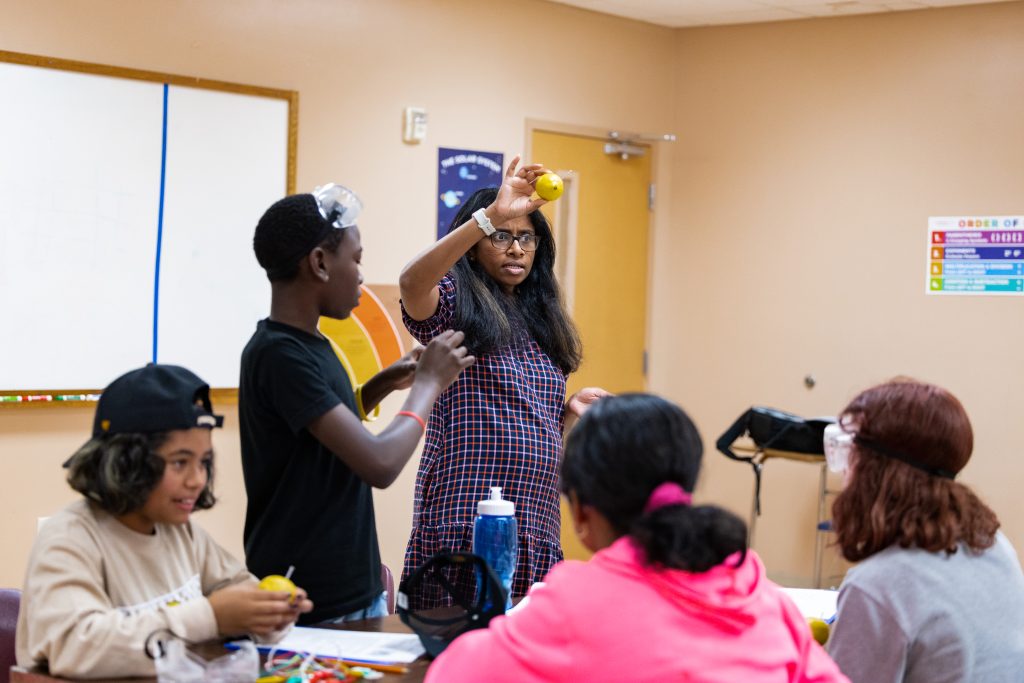
During the first club meeting, Pathirathna had students fill out a short questionnaire to gauge how much they already knew. The form included questions like, “Have you seen a scientist?” “Have you met an engineer?” and, “What do you expect from this club?”
Results found that most students expected they would learn more about science and engineering from the club and that it would be fun and interesting.
During the following meetings, students performed experiments, such as building the lemon batteries and concocting “elephant toothpaste,” where students combined dry yeast, dish soap, warm water and hydrogen peroxide to create the foamy substance. After each experiment, Pathirathna explains the science behind it while students complete fill-inthe- blank notes.
“My idea is to conduct little experiments that we can do from things that we can find from around the house, just to give them an idea about what science is,” Pathirathna says.
After a few more experiments are completed, they will learn about scientific writing and presenting, which will culminate in students creating posters and giving presentations on their scientific
findings.
Students look forward to the STEM club every month, as well as the future summer camp, and more students ask to join every week, Marshall says. Based on this enthusiasm, she is hopeful the club, and other STEM initiatives, will grow.
“Other faculty here, at Palm Bay Academy, are interested in our program, and we would like to expand into other areas of STEM beyond what we have now,” she says. “We would welcome an opportunity to work with other Florida Tech staff, faculty and graduate students in the future. We are so very grateful for this partnership.”
Pathirathna says she wanted to start the club in middle school because she has found that many college freshmen are at a beginner level in science and mathematics. She hopes that catching students’ interests when they are younger, potentially even in elementary school, will help them build a strong foundation in STEM subjects and make them more prepared for university classes.
“It’s unfortunate in 2023, especially in the U.S., the kids are not aware of these things, which actually surprised me,” she says. “Coming from an Asian country and knowing how big of an exposure we have in STEM versus here—it’s thrown me off. I don’t know why, but the moment they hear the word ‘chemistry’ or ‘science,’ they don’t even want to talk about it.”
However, the students have pleasantly surprised Pathirathna with their level of thinking and eagerness to
learn. Working with college-level students, she has found they have a fixed mindset and do not handle change well. In middle school, however, most students have been flexible and eager to learn, she says.
“With these little kids, they’re ready for anything,” she says. “It’s just so much energy. Whether they know or not, it is like they’re always happy. They would never get frustrated, and I have a feeling that they’re always willing to accept changes.”
Pathirathna and Marshall hope the STEM Club, which runs until April, inspires students and presents them with opportunities they would not have otherwise had. They also hope they can continue similar outreach activities well into the future.
“Dr. Pathirathna has graced our campus with her knowledge and expertise,” Marshall says. “We look forward to partnering with her on future grants, and we hope this program will continue for years to come. Thank you, Florida Tech.”
This piece was featured in the winter 2024 edition of Florida Tech Magazine.

